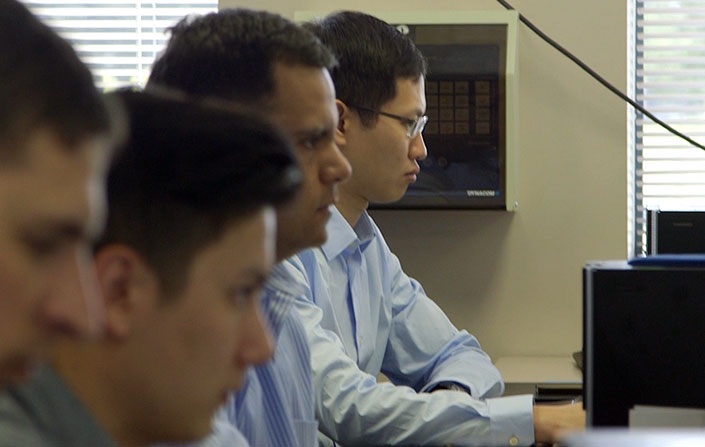Service members are a key resource to fill the STEM skills gap
The future of innovative technology companies like Microsoft depends on a robust supply of workers with science, technology, engineering and mathematics (STEM) education and training. So does the future of industries such as retail, manufacturing, energy and even entertainment. And while we are committed to supporting STEM education, we believe one key to ensuring the tech industry’s future is providing training for an untapped talent pool: our nation’s armed forces.
Researchers currently predict that the supply of STEM graduates from K–12 and college education will fall short of the demand for workers over the coming decade. A 2015 report by the U.S. Department of Labor’s Bureau of Labor Statistics finds that the hardest-hit categories will be software developers, data scientists and systems engineers.
Educators, lawmakers and industry leaders have responded to this challenge with proposals to increase the number of high school and college graduates in STEM fields; President Obama called out STEM education as a priority in his State of the Union address on Jan. 12, demonstrating how job creation is a national priority. Microsoft is helping with this effort; in September we announced a new commitment of $75 million over the next three years to our YouthSpark initiative, with a focus on increasing access to computer science education to all youth, especially those from underrepresented backgrounds.
This is an important investment in the future — but the skills gap is real now. If American industry is to be competitive tomorrow, we need to fill roles today to ensure that the tech industry and the economy continue to expand and offer opportunity. In addition to strengthening K–12 and college-level STEM education, we need to also support tech training for adults who have the aptitude to learn the deep skills our industry needs.
Some of the best candidates for that training, and those jobs, are the men and women serving in the U.S. military. Whether they are officers or enlisted personnel, service members have gained valuable hands-on STEM experience on the job. These men and women operate high-tech weaponry, use sophisticated software to move supplies and troops around the world, and analyze vast volumes of intelligence data to anticipate, prevent and respond to threats. They bring a sharp understanding of what technology can accomplish on the battlefield. And they bring even more: leadership, problem-solving and a passionate commitment to something greater than themselves.
Microsoft is ready to benefit from those capabilities and aptitudes when service members transition to civilian life. We seized this opportunity in 2013 when we created Microsoft Software & Systems Academy (MSSA), which provides intensive tech training, mentorship and career counseling. It’s proved successful, with 84 percent of program graduates landing high-paying technology jobs, and we’ve recently announced expansion of the program to an additional 12 bases. Successful graduates of the program are guaranteed an interview at Microsoft. We’ve been fortunate to hire many of them, and have helped many others find positions with companies like Amazon, CenturyLink and Expedia.

We’re also supporting K–12 and college-level STEM education through a variety of programs. DigiGirlz, a YouthSpark program, focuses on providing computer science training and opportunity to high school girls, aiming to bring girls’ participation closer to parity with that of boys and to open opportunities to a diverse range of students. We’re even including our military communities in the effort — recently we partnered with the USO to present a first-of-its-kind DigiGirlz program to daughters of active duty service members at Fort Belvoir in Virginia, and we’re looking forward to future opportunities to help military families make the most of their STEM education and career options.
Whether we teach STEM skills and knowledge in schools or in career training programs such as MSSA, we have an opportunity to expand the number of bright, committed, capable workers who can move the tech industry and our country forward. We have an opportunity to help individual students, service members and civilians expand their own tech skills and forge new career paths that can lead to tremendous professional and personal growth. We encourage service members and civilians alike to think beyond their immediate roles. Ask yourself: What can STEM contribute to my industry, and what can I contribute to society by building my STEM skills? We’re eager to see what answers you find, and to help provide service members and their families with guidance and support along the way.
